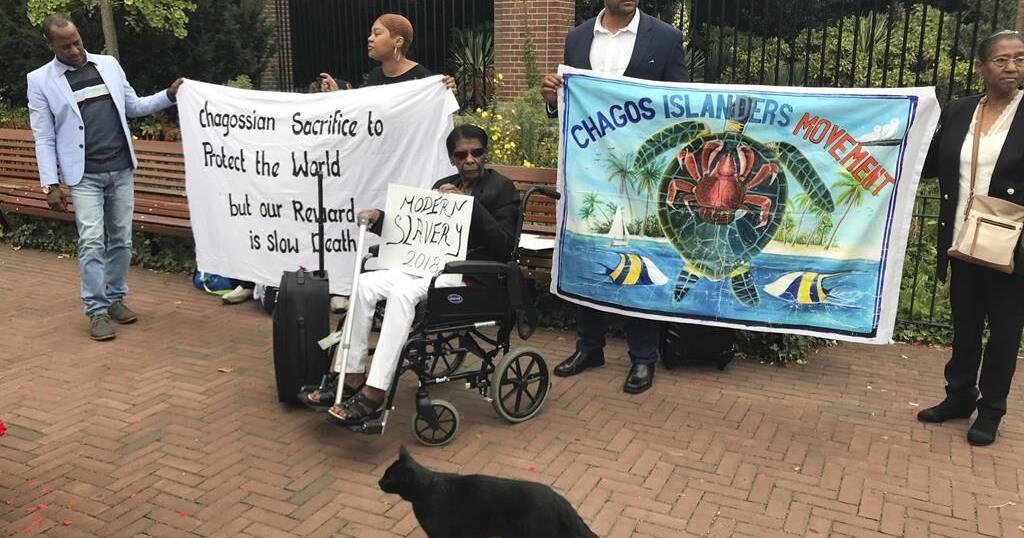LONDON (AP) — The British government agreed Thursday to hand sovereignty of the long-contested Chagos Islands, an archipelago of more than 60 islands in the Indian Ocean, to Mauritius, in a deal that secures the future of a strategically important U.K.-U.S. military base there.
British Foreign Secretary David Lammy said the agreement will secure the future of the base at Diego Garcia, the largest in the chain of remote islands off the tip of India. The base, which is home to around 2,500 personnel, mainly Americans, has been involved in military operations including the 2003 war in Iraq and the long-running war in Afghanistan.
Britain’s Labour government said without the deal the secure operation of the military base would be under threat, with contested sovereignty and legal challenges, including through various international courts and tribunals.
“It will strengthen our role in safeguarding global security, shut down any possibility of the Indian Ocean being used as a dangerous illegal migration route to the U.K., as well as guaranteeing our long-term relationship with Mauritius, a close Commonwealth partner,” Lammy said.
As part of the deal, the U.K. will retain sovereignty of Diego Garcia for an initial period of 99 years, and will pay Mauritius an undisclosed rent. It will also create a “resettlement” fund for displaced Chagossians aimed at letting them move back to the islands other than Diego Garcia.
The Chagos Islands, which conjure up images of paradise with their lush vegetation and long stretches of white sandy beaches, have been at the heart of what Britain has called the British Indian Ocean Territory since 1965 when they were siphoned away from Mauritius, a former U.K. colony that gained independence three years later. Mauritius, which lies east of Madagascar in southern Africa, is around 2,100 kilometers (1,250 miles) southwest of the Chagos Islands.
Following a lease agreement with Britain, the U.S. built the naval base at Diego Garcia for defense purposes in the 1970s. The U.S. has described the base as “an all but indispensable platform” for security operations in the Middle East, South Asia and East Africa.
The agreement will have to be signed off in a treaty and is dependent on legal processes being finalized. Both sides have committed to complete this as quickly as possible. A spokesman for British Prime Minister Keir Starmer said he spoke to his Mauritius counterpart, Pravind Jugnauth, on Thursday morning, welcoming the agreement after two years of negotiations that began under the previous Conservative government.
“56 years after our independence, the decolonization is finally complete,” Jugnauth said in a televised address to the nation later Thursday.
Around 1,500 inhabitants from the Chagos Islands were displaced to make way for the U.S. base, in what Human Rights Watch said last year amounted to “crimes against humanity committed by a colonial power against an indigenous people.”
The Mauritius government said that the treaty will aim to resolve all outstanding issues related to the islands, including “its former inhabitants,” as well as addressing “the wrongs of the past.”
It laid out the hope that those displaced who are still alive and their descendants, who are mainly living in the U.K., Mauritius and the Seychelles, will have a right to return, as it is now “free” to implement a resettlement program on the islands except Diego Garcia.
It added that the U.K. will financially support the Chagossians, who have fought a long-running legal battle about their displacement, most recently in 2016 when they lost out in a Supreme Court ruling in the U.K. At the time, the previous Conservative government refused their right to return but voiced its “deep regret” for the way the Chagossian community had been mistreated in the 1960s and 1970s.
Over the years, the Chagossians and Mauritius have garnered increasing international support, notably among African nations and within the United Nations. In 2019, in an advisory option that was non-binding, the International Court of Justice ruled that the U.K. had unlawfully carved up Mauritius when it agreed to end colonial rule in the late 1960s.
In a statement, the White House said President Joe Biden applauded the “historic agreement” on the status of the Chagos Islands.
“The agreement secures the effective operation of the joint facility on Diego Garcia into the next century,” the statement said. “This agreement affirms Mauritian sovereignty over the Chagos Archipelago, while granting the United Kingdom the authority to exercise the sovereign rights of Mauritius with respect to Diego Garcia.”
However, Conservative lawmakers standing to be leader of Britain’s opposition party expressed dismay at the decision to hand over sovereignty of all but one of the islands. They were criticized for the comments, given that the previous Conservative government started the negotiations.
___
Gerald Imray in Cape Town, South Africa, contributed to this report.
